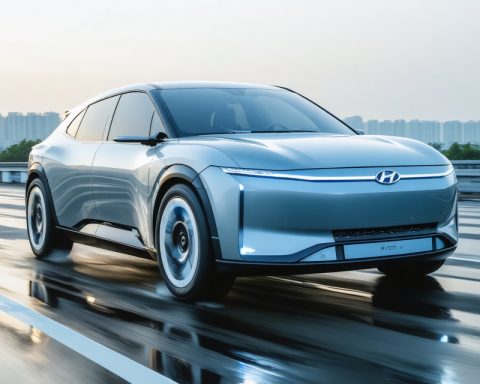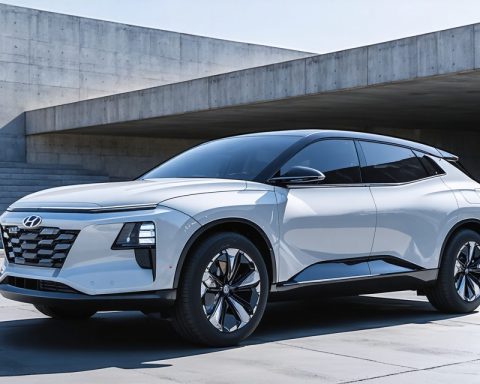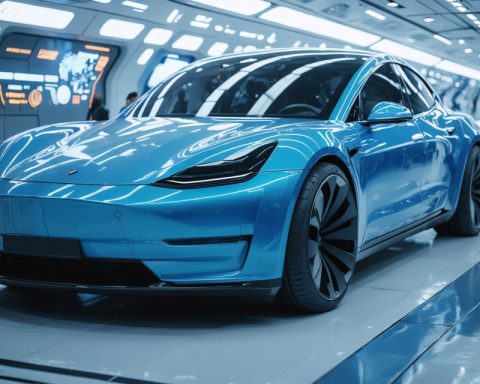- Hyzon Motors ceased operations on February 18, after setting a goal to produce 40,000 hydrogen fuel cell trucks in just four years.
- The company failed to secure critical investment or acquisition despite extended efforts, with a decisive shareholder vote on February 13 sealing its fate.
- Notices were issued to employees in Illinois and Michigan as early as December, indicating diminishing hopes for funding and support.
- Government subsidies and uncertain customer interest further complicated Hyzon’s financial struggles.
- The departure of CEO Parker Meeks on February 4 marked a turning point, leaving the company in the hands of CTO Christian Mohrdieck during its final days.
- Hyzon Motors’ collapse reflects the challenges and unpredictable nature of innovative ventures in the green technology sector.
In a dramatic turn of events, the once-ambitious dreams of Hyzon Motors have come crashing down. Just four years after setting an audacious goal to produce 40,000 hydrogen fuel cell electric trucks, the company shuttered its doors on February 18. This closure marks a poignant end for a firm that sought to revolutionize the world of green transportation.
Hyzon spent months in a desperate search for salvation—either through investment or acquisition. Unfortunately, those efforts proved fruitless after a decisive shareholder vote on February 13 sealed its fate. As the curtains drew, silence enveloped the Bolingbrook-based company, which has yet to formally communicate its demise to regulators.
The collapse did not come without warning. In December, Hyzon issued notices to employees in Illinois and Michigan, adhering to federal law, as hope for securing critical funding diminished. The uncertainty surrounding government subsidies and their availability left many potential customers hesitant, further complicating Hyzon’s already precarious position.
The departure of CEO Parker Meeks on February 4 signified the beginning of the end. Meeks quickly transitioned to a hydrogen production startup, Utility, leaving Hyzon’s future in the hands of Chief Technology Officer Christian Mohrdieck. Despite his extensive experience in the industry, Mohrdieck could only oversee the company’s final days.
The tale of Hyzon Motors is one of innovation overshadowed by insurmountable obstacles. Ambitions to transform the transport landscape met with harsh economic realities highlight the volatile nature of pioneering efforts in the green tech sector. As Hyzon’s story concludes, it serves as a sobering reminder: In the pursuit of change, even the boldest visions must contend with the unforgiving winds of practicality.
The Rise and Fall of Hyzon Motors: What Went Wrong?
Insights into Hyzon Motors’ Collapse
The recent closure of Hyzon Motors, a company once at the forefront of the hydrogen fuel cell electric truck industry, underscores the volatile nature of the green tech sector. As we dissect the factors contributing to Hyzon’s downfall, several critical points emerge that may help stakeholders navigate similar challenges.
How-To Steps & Life Hacks for Green Tech Startups
1. Risk Assessment and Mitigation: Develop a robust risk management framework to identify and mitigate potential financial and operational risks early on.
2. Diverse Funding Strategy: Secure diverse funding sources, including government grants, venture capital, and strategic partners, to safeguard against fluctuating market conditions.
3. Flexible Business Model: Consider adaptable strategies that allow for pivots in response to changing technologies or market demands.
4. Clear Communication Channels: Maintain open lines of communication with regulators, investors, and employees to ensure transparency during critical business phases.
Real-World Use Cases for Hydrogen Fuel Cell Technology
– Long-Distance Transportation: Hydrogen fuel cells are particularly suited for long-haul trucking where battery weight and charging times become impractical.
– Industrial Applications: Fuel cells can be used in forklift and crane operations, providing efficient energy and reducing carbon emissions.
– Public Transit Systems: Hydrogen buses are gaining traction in urban centers aiming for zero-emission public transport options.
Market Forecasts & Industry Trends
Despite Hyzon’s closure, the global hydrogen fuel cell vehicle market is projected to grow significantly, driven by increasing emphasis on clean energy. A report by Allied Market Research forecasts the market size to reach $42 billion by 2030, at a CAGR of 66.9% from 2020.
Reviews & Comparisons
Comparing hydrogen fuel cell vehicles to battery electric vehicles reveals distinct advantages for each. Hydrogen offers quick refueling times and longer range, whereas electric vehicles benefit from established infrastructure and lower energy costs, particularly when charged from renewable sources.
Controversies & Limitations
– Infrastructure Challenges: A significant barrier to hydrogen vehicle adoption is the limited refueling infrastructure.
– Energy Consumption: Hydrogen production can be energy-intensive, often relying on non-renewable resources, raising questions about its overall sustainability.
Recommendations for Aspiring Entrepreneurs
– Invest in Research and Development: Focus on R&D to drive innovation and competitive advantage.
– Build Strategic Alliances: Foster collaborations with tech companies, energy providers, and government entities to bolster resource availability and influence policy development.
– Monitor Policy Changes: Stay informed about regulatory environments and subsidies that could impact business viability.
Conclusion
The story of Hyzon Motors offers valuable lessons for green tech enterprises aiming to disrupt industries while navigating economic realities. Entrepreneurs must balance visionary goals with practical strategies, ensuring sustainability, innovation, and risk management are at the core of their operations.
For further insights into the hydrogen industry, consider visiting Hydrogen and Fuel Cells Office to explore comprehensive resources and support for hydrogen technology development.














